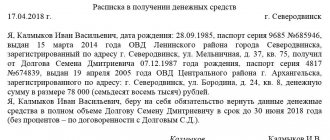Everyone who lives in apartment buildings, sooner or later, is forced to think about the question of what is included in the common property of an apartment building (hereinafter referred to as OG). This happens for various reasons, but mostly unpleasant situations in relations with neighbors, management companies or homeowners' associations (housing associations) become incentives for reflection.
Well, for example, the neighbors were doing renovations and made the entire stairwell so that it was only possible to walk past the construction debris cleanly (or even to walk at all) with great difficulty. Or in the parking lot near the house, some smart guy has fenced off a space for himself and is not allowing the cars of other residents into it.
Or maybe the management company says that you need to replace the leaking sewer riser in the toilet at your own expense. Although you live on the 2nd floor of a nine-story building and the drains from all these floors pass through this pipe.
Another example: in the courtyard of the house there is a playground and a utility playground, but the manager refuses to paint and repair them, citing the fact that this should be done by the municipality. He, in turn, refuses and nods back to the Criminal Code. And it happens that there is only one such site for two houses located opposite each other, and the question arises of who should pay for what.
This is just a drop from the huge ocean of questions that the OI generates. And, if you are reading this article, then most likely you have already been taken out of your comfort zone and have become aware that life in an apartment building does not end outside your own apartment.
Concept of OI
So, first, let's define common property in an apartment building.
According to Article 36 of the Housing Code of the Russian Federation, the common property of the owners of premises in an apartment building is the premises, structural elements and engineering systems of apartment buildings necessary to service two or more premises. The property also includes a plot of land under an apartment building with amenities located on it, green spaces and other objects designed to serve the house.
As you can see, the main property by which property can be classified as general is its purpose for serving more than one room in the house .
Let's return to our example with the garbage in the stairwell. Stairs and landings are designed for residents to exit their apartments to the street and back. Without them, access to two or more apartments is not possible. Therefore, these premises belong to the common property of the owners in the apartment building.
Now an example with a sewer riser on the second floor. It seems that the pipe is leaking only within one bathroom and it seems that “everything in my apartment belongs to me.” But that's not true.
Imagine what will happen if the owner of the apartment suddenly decides that it is easier not to repair the pipe, but to plug it? Of course, people living on the upper floors will not be able to use the toilet and there will be a flood. And all because the pipe is used to serve several rooms. Therefore, it is the common property of the owners of premises in an apartment building and must be repaired by a service organization, and not by the owner of the apartment (unless, of course, he himself damaged it).
A short list of elements that can be classified as OI MKD:
- Common corridors, stairs and landings, elevators, attics, storage rooms for strollers, bicycles, vestibules, basements, garbage chutes, boiler rooms;
- Foundations, load-bearing walls, floors, roofs, windows and doors in common areas;
- Engineering systems located in the basement, in the attic, risers of such systems to branches to apartment systems;
- Sanitary equipment for common showers, toilets, laundries and other similar premises in houses of the corresponding type;
- House-wide energy metering systems;
- A plot of land for an apartment building, parking lots, driveways, sidewalks, children's, sports, utility, container and other sites located on it.
Do you understand the principle? See, nothing complicated. Determining what is personal and what is general is not at all difficult. Is it true? No matter how it is!
The examples that we gave above are really quite simple and, fortunately, they are the majority. But there are cases when it is not so easy to understand what is common property in an apartment building.
Payment Responsibilities
At a general meeting, the residents of the house choose the Management Company and suppliers of heat, water, gas, and electricity. All home maintenance services must be provided on the basis of agreements between residents and suppliers.
If you study what we pay in the housing and communal services receipt, you can understand that all services are important, without them it is difficult to imagine a comfortable life and way of life. The apartment is provided with:
- warmth;
- cold and hot water;
- sewerage;
- drainage;
- gas;
- electricity.
Also, residents of apartment buildings pay for garbage removal, for cleaning the territory and the house, for the maintenance and repair of housing.
Both the owners of their own apartment and the tenants under a social tenancy agreement must pay the bills. The former pay for utilities immediately after signing the purchase and sale agreement, the latter - after signing the lease agreement.
ATTENTION! Payment for services is calculated taking into account the articles of the Housing Code of the Russian Federation.
The list of mandatory payments is given in articles 30 and 154, others . Article 54 specifically states that residents will pay for heating even if they are absent for a long time, because it is impossible to disconnect one apartment in an apartment building from the heating system.
Payment for services in a municipal apartment is carried out according to the provisions of Article 153 of the Housing Code. What services can you not pay for legally?
As can be seen from the provisions of the Housing Code, the presence of individual metering devices will allow you not to pay only for gas, light, water, electricity.
But home maintenance, which is usually performed as a whole (cleaning, repairs, maintenance) should be paid for. Even if the residents are absent, they transfer funds to the communal apartment every month.
Plot for MKD
Let's take the example of a children's playground in the yard. Let's say we have one house and there has been a playground in front of it all our lives. Other houses don’t come here because they have their own buildings. It would seem that the site belongs to an apartment building and is intended for all apartments without exception. Since there are more than two rooms, then the place for games is definitely an Olympic Games.
In fact, there may be several options here.:
- Option one – the site really is the Olympic Games. To do this, in addition to the indicated signs of community, it must be located on a plot of land related to this house. In this case, the plot must be formed and registered in the cadastral register as the plot on which a specific apartment building is located. Only this condition transfers the land and all elements located on it intended for servicing the house into the common ownership of the owners of the premises.
- Option two – the land plot for the MKD has not been formed and is not registered with the cadastral register. In this case, the courtyard land and the playground located on it are the property of the municipality and are not included in the general building composition. You can find out whether a plot has been formed under your apartment building online in the public cadastral map of Rosreestr. Registering land is not difficult: any owner of a building from an apartment building can submit an application to the municipality and they will do everything themselves and for free.
- Option three – the land in the yard belongs to third parties. Yes, unfortunately, this happens, especially in densely built cities. As a rule, such plots are registered as ownership or lease for the construction of commercial facilities close to residential buildings. There can be no talk of any common property here. And, if the playground has not yet been replaced by some store or fitness center, then it is only a matter of time.
How can this happen? Yes, very simple.
The owners of the premises did not take advantage of their legal right and did not apply to the municipality for the formation of a land plot for the md. At the same time, some businessman turned to the administration with a request to transfer part of the land in the yard for commercial development, completed the necessary documents, for which public hearings were held, after which he successfully purchased the site at auction.
And, although now local authorities are trying to closely monitor such cases. Residents of houses who have not registered the land as common property have something to think about so as not to lose the usual boundaries of their yard.
As you can see, issues of common property related to land are not as simple as determining the composition of common property inside an apartment building.
Absence of tenant
It is also possible not to pay for some utility services due to a long absence from your place of residence. We are talking about long business trips, treatment or rehabilitation in a medical institution, and departures for other reasons.
- When the departure is planned, you can notify the accounting department of the Management Company or Housing Office in advance.
- If there are metering devices in the apartment, the payment will decrease automatically, because the consumer will not use resources, there will be no consumption of electricity, water, or gas.
- If there are no devices and the payment is calculated according to the norms, the accounting department will reduce the payment accordingly.
- You can submit an application upon arrival, but in both the first and second cases you will need to prove your absence - a travel document, a medical card indicating the hospital, a voucher, or another document.
You can also achieve a recalculation if only one of the tenants, for whom payments are calculated according to the norm, will be absent from the apartment for some time.
But even a long departure will not be a reason for the apartment’s account not to receive payments for house maintenance, heating, repair services, etc.
Determining the composition of the Olympic Games
To answer in more detail the question of what is included in the common property of an apartment building, the Rules for the maintenance of common property in apartment buildings (approved by Decree of the Government of the Russian Federation of August 13, 2006 No. 491) allow .
The first section of the document is devoted to determining the composition of common property in an apartment building. You can read it freely in the ConsultantPlus-online or any other system.
The principle is still the same: property is common if it is located in a house or within the boundaries of its land plot and serves more than one premises.
Clause 24 of the Rules defines the list of technical documentation that must be maintained in relation to the OI.
By the way, the OI includes structures designed for free access of people with limited mobility to public premises. Thus, ramps, lifts, handrails and other similar structures, with the help of which a disabled person can freely get into the entrance, elevator or onto the site, also belong to common property and must be properly maintained.
But principles are principles, and only documents provide specifics. So, in accordance with Part 3 of Article 162 of the RF Housing Code, the composition of the PO must be specified in the management agreement .
It is in relation to the property specified in the contract that the management company bears responsibility and obligation for proper maintenance to the residents. Also, based on the composition of this property, the amount of payment for residential premises is determined.
Who owns the OI?
Everything is simple here: since everyone uses property, then it belongs to everyone . That is, the property is the common property of all owners of premises in the apartment building. This is the norm of the Housing Code of the Russian Federation (Article 36).
The share in the ownership of the visual assets is proportional to the area of the premises owned. That is, the larger the apartment you own, the correspondingly larger share of the OP belongs to you.
Since this is property, the owners have the right to dispose of it at their own discretion. However, this right has certain restrictions aimed at preventing the possibility of infringement of the rights of any owners to use common household goods.
Thus, owners are prohibited from allocating their share in the property in kind or alienating it , and reducing the size of the property is allowed only through reconstruction based on a decision of the general meeting.
Remember our example when a neighbor blocked off his parking space? In fact, he allocated his share in kind, which is illegal. If the land under the apartment building is registered in the cadastral register, then contacting the prosecutor’s office will help rectify the situation, since the norms of housing legislation have been violated.
Naturally, like any other property, property also has responsibilities in addition to rights. So the owners must, at their own expense, ensure its proper maintenance independently or with the involvement of specialized organizations. And some types of services, such as elevators, gas equipment, metering units, etc. can only be serviced by professional companies.
The essence of OI
The main purpose of the objects that are part of the common property in an apartment building is to create conditions for comfortable living in residential premises or carrying out activities in non-residential premises. The most important thing is that the number of serviced premises must be at least two.
The picture reveals the composition of the common property
Since the building has infrastructural significance, in most cases it experiences an increased functional load, and therefore must be promptly maintained and repaired. Pipes must be painted and replaced, the roof repaired from leaks, facades updated, entrances whitewashed, benches repaired, etc. Everything here is like in a private house or the most ordinary apartment, only on a larger scale.
In order to organize proper maintenance, owners of premises in apartment buildings must choose one of the management methods provided for by the Housing Code of the Russian Federation: direct, management company or homeowners' association (housing association).
Depending on the chosen method, owners conclude agreements with specialized organizations that allow them to service the OI in accordance with the approved Rules No. 491. The most common method of management is a management organization and, accordingly, a management agreement with it.
In order for the management company or HOA to organize the maintenance of a common building, under a management agreement, the owners of premises in the apartment building pay a monthly fee for the maintenance of the residential premises. The amount of this fee in accordance with the Housing Code of the Russian Federation is determined at the general meeting.
Considering that the property plays a key role in ensuring the life of the apartment building, the state has provided mechanisms aimed at ensuring the mandatory maintenance of it.
So, if the owners themselves do not choose a management method, do not enter into a management agreement or do not approve the amount of maintenance fees, local authorities will do this for them. This is necessary so that even unorganized houses have proper maintenance, and people living in them can safely stay in their premises and outside them within the registered local area.
Peculiarities
It is necessary to pay for utilities provided by the Management Company, Housing Office, Homeowners' Association, as well as suppliers of basic resources. This is the responsibility of all homeowners - apartments, private houses. Only in exceptional cases can consumers refuse both services and payment for them:
- With the low quality of such services. If the supplier provides water with a dangerous composition or serves cold water instead of hot water, this fact should be recorded, and in the future, payment can be refused based on the report.
- You also need to notify the Management Company in case of prolonged absence from your place of residence, in which case it will also be possible to refuse most of the payments.
In order to always keep the house in excellent condition, under any circumstances you need to pay for the maintenance of the house, cleaning in it and in the surrounding area. You can cut off the supply of water or electricity, but you must pay for heat.






